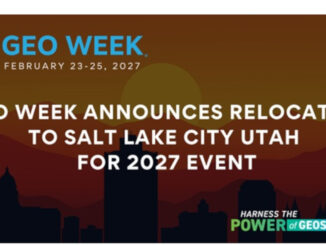At the end of each year, we at GoGeomatics Canada like to wrap up by taking the time to look back and see which articles have had the strongest impact on our readers. With 2014 right around the corner, we would like to wish you a happy new year by presenting you with the 5 most-read GoGeomatics Magazine articles from 2013. Here they are:
5) GIS Certification: Is It Worth It?
Written by Jon Murphy – February 5th, 2013
“Unlike Canadian surveyors, for example, GIS professionals in Canada are not pressed by law to obtain certification. This fact has led to one of the more common questions in Geomatics circles: is a GIS certification worth the investment? This has been the subject of a debate that spans over a decade. Many of us have accreditation from the schools that we attended. Sometimes it’s a graduate degree or a post graduate diploma. Do we need a certification outside of the ones granted by our Canadian universities and colleges?”… Continue Reading
4) Where is the Antipode for your area? Just Point, Click & Reveal
Written by Ted MacKinnon – February 13th, 2013
“I am sure if you have been to one of my GIS web sites then you may have noticed that I tend to mostly write about Canadian web mapping related topics, something that has progressed rapidly over the past few years and appears more and more all over the internet. But every now and then I come across a few mapping related sites like this one that is a little bit different then all the others. Ever hear anybody use the expression “You better be careful you don’t dig too deep or you will end up in China” while digging a hole?” … Continue Reading
3) Why Using the Word Geomatics Sucks in Canada
Written by Jon Murphy – October 21st, 2013
“A few months ago, GoGeomatics asked a number of distinguished Canadian writers to share their thoughts on a controversial subject. We asked them to think about whether or not we should continue to use the word “geomatics” to describe our industry and sector, or if we should look to a more fitting alternative. We now have four well-though out articles on this subject. You can skip my jibber-jabber and scroll right to the bottom to see those articles.” … Continue Reading
2) The Death of Cartography and the Rise of the Machines
Written by Andrew Rall – April 22nd, 2013
“This article explores how technology has influenced map making and how cartography requirements have changed, and what skill sets one needs to make the modern map. Cartography: Back in the mid 1980’ in geology departments hand drawn maps were given to the drafting department, who meticulously drafted the maps onto transparency, copies were made and one spent weeks colouring them in with pencil crayons. Five years later the computers and A0 printers came; the drafting department started shrinking, and today has disappeared.” …Continue Reading
1) Grow or Die – 3 Key GIS Career Needs
Written by Tyler Mitchell – January 22nd, 2013
“The premise of a liberal arts or science degree is to get a wide range of exposure across several disciplines. The end goal being a “well rounded” education. I’ve always liked to believe that was my intent when I studied Geography two decades ago, because that simple degree was a gateway to an exciting and challenging career in GIS. The reality was more providential than planned on my part – I ended up focused on one particular part of my education to get employed: GIS. ” …Continue Reading




Be the first to comment